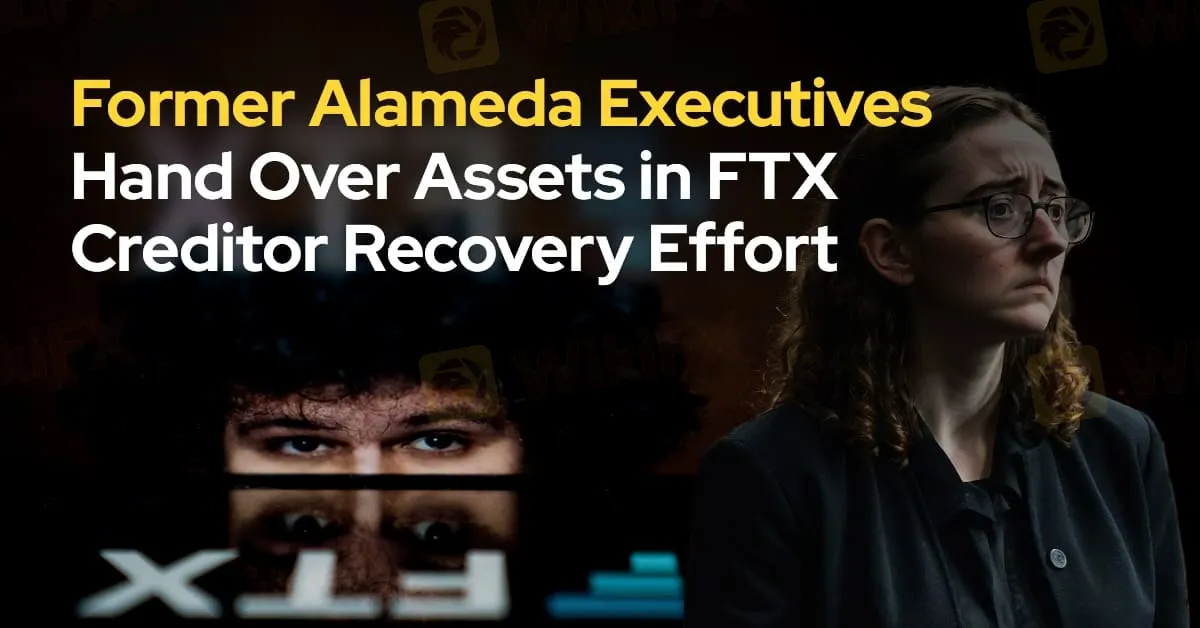Former Alameda Executives Hand Over Assets in FTX Creditor Recovery Effort
Abstract:Amid ongoing efforts to recover assets for creditors of the defunct crypto exchange FTX, Sam Trabucco, former co-CEO of Alameda Research, has agreed to forfeit high-value assets, including two San Francisco properties and a yacht. According to a court filing dated 3 November, the combined value of these assets reaches approximately $11.2 million — with the properties estimated at $8.7 million and the 53-foot yacht at $2.5 million.

Amid ongoing efforts to recover assets for creditors of the defunct crypto exchange FTX, Sam Trabucco, former co-CEO of Alameda Research, has agreed to forfeit high-value assets, including two San Francisco properties and a yacht. According to a court filing dated 3 November, the combined value of these assets reaches approximately $11.2 million — with the properties estimated at $8.7 million and the 53-foot yacht at $2.5 million.
Trabucco‘s involvement with FTX founder Sam Bankman-Fried and former Alameda CEO Caroline Ellison placed him at the centre of the cryptocurrency empire that later unravelled. He departed Alameda Research in August 2022, only a few months before FTX and Alameda filed for bankruptcy in December. Despite no formal admission of wrongdoing, Trabucco’s social media activity hinted at the aggressive, high-stakes trading strategies employed by Alameda under his leadership.

In addition to the physical assets, Trabucco has relinquished rights to claims totalling roughly $70 million against FTX. He also acknowledged receiving approximately $40 million from the company in transactions now deemed “avoidable,” marking these as potential funds recoverable by creditors. These forfeitures are expected to form a part of the creditor recovery plan as bankruptcy proceedings continue.
Meanwhile, Caroline Ellison, another prominent former executive tied to the scandal, has begun serving her two-year prison sentence, following her conviction on multiple charges tied to her management of Alamedas funds. Last week, Judge Lewis Kaplan ordered Ellison to report to a low-security prison near Boston, likely the Federal Correctional Institution in Danbury, Connecticut, marking the next phase of legal consequences in the FTX fallout.
Ellison‘s charges stem from a guilty plea she entered in December 2022, admitting to seven counts, including wire fraud, securities fraud, commodities fraud, and money laundering. These charges were linked to her handling of FTX and Alameda’s customer funds, a misuse that became a central factor in FTX‘s collapse. Ellison’s testimony in Sam Bankman-Frieds trial was instrumental in his recent conviction on all counts.
Alongside her sentencing, Ellison has also settled with FTX debtors by committing to surrender most of her remaining assets. This includes any property not already earmarked for government seizure or legal fees. According to FTX, this will leave Ellison with only minimal personal belongings.
The upcoming sentencing of FTX co-founder Gary Wang, scheduled for 20 November, is the next step in a series of judicial actions against former FTX executives. Wangs sentencing will follow that of Nishad Singh, former engineering director at FTX, who was recently sentenced to time served.
With these forfeitures and prison terms, the former FTX executives are moving through the extensive legal fallout of the company‘s collapse. These actions not only signify an attempt to compensate creditors but also serve as reminders of the far-reaching consequences for those at the forefront of FTX’s operations. The bankruptcy case continues to expose the risks inherent in unregulated cryptocurrency ventures and has drawn attention to the importance of oversight within the digital finance industry.

Read more

Google Bitcoin Integration: A Game-Changer or Risky Move?
Google Bitcoin integration blends wallets with Google accounts, stirring security fears and adoption hopes. ZKP encryption aims for privacy.

Pi Network Mainnet Launch: Game-Changer or Crypto Controversy?
Pi Network’s Mainnet launch sparks debate. With 100M users, KYC compliance, and Binance listing rumors, will it redefine crypto accessibility?

Coinbase Urges US Lawmakers to Establish Clear Crypto Regulations
Coinbase calls for clear US crypto regulations to foster innovation, protect consumers, and ensure transparency in the digital asset industry.

Binance.US Resumes USD Deposits and Withdrawals After 19 Months
Binance.US resumes USD deposits and withdrawals via ACH transfers, marking a major milestone for the crypto exchange after regulatory challenges.
WikiFX Broker
Latest News
Pi Network Mainnet Launch: Game-Changer or Crypto Controversy?
GlobTFX Users Report Same Issue! But Why?
Rate Cut or Not? It Depends on Trump’s Policies
Why Do You Keep Blowing Accounts or Making Losses?
eToro Adds ADX Stocks to Platform for Global Investors
B2BROKER Launches PrimeXM XCore Support for Brokers
Germany's Election: Immigration, Economy & Political Tensions Take Centre Stage
WikiFX Review: Is IVY Markets Reliable?
WikiFX Community Creator Growth Camp
Effect of Tariffs on Gold and Oil Prices
Rate Calc

